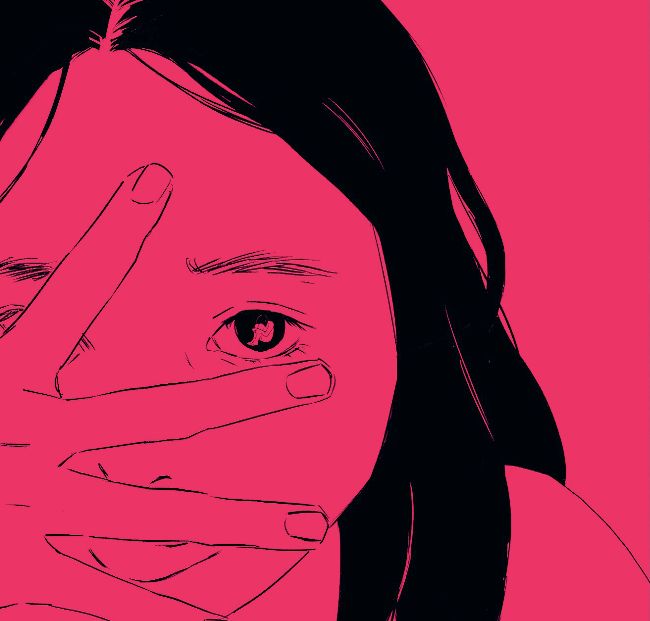Community Agender -Journey -Void
DISSOLVED GIRL : Learning to Live Without Compromise
In a quarantine hotel room in Hong Kong, Nat Mak finally decided they were void.
Nat Mak

Illustrations by Nat.
There was no awakening. It was a temporary relief after a long pilgrimage of finding the shoe that fits. The rest of the path was getting myself to really say it aloud — I am void — and then facing the reaction. I felt like a rolling stone that had been weathered and slick with mud. Somehow after travelling for so long I hadn’t found a resting spot yet.
It’s strange, being Asian and queer. Having grown up in Hong Kong and the US, I’ve heard a good selection of microaggressions, just for different parts of my identity. All of which are completely normalised.
I had come out for the first time as agender during an all-school presentation about sexuality and gender identity. The presentation was mostly addressing heavy stigma at school, that classrooms were still tolerant of harmful ideals, especially for LGBTQ+ people. At the end, I took the liberty to introduce some new terminology, including my gender. The next day, my teacher called me a “gentlelady” in class at an attempt at humour. I was slightly amused, since I had a pixie cut the entire year, but it was only after my presentation he finally vocalised what he really thought of me.
I thought I was secure in my identity, but I didn’t quite internalise my race and ethnicity until going to the US. Teachers often confronted me with how “good my accent was” as an international student and asked if other people in my family were “the same”.
Whenever I mentioned I was from Hong Kong, my peers asked provoking political questions to see what would get a rise out of me. The remarks that piled up weren’t strong enough to hurt me, but they did something worse: they got me to tolerate them.
Eventually, I believed that if I buried my identity or stopped making it a big part of my life it would be less exhausting. If I accepted that my agenderness, my tomboyish dress, and pixie cut were blunders of my adolescence, I wouldn’t have to keep justifying it. If I stopped making my race such a big deal, I wouldn’t make a target of myself. The remaining years of high school became a game of appeal and conformity. I focused on looking cis and blocked out any idea that I was otherwise. I thought that I could be the “cool girl” by taking what came at me, because cool girls aren’t bothered by anything and don’t need to fend for themselves.
I found myself becoming increasingly obsessed with my appearance and feeling the need to “glow up” so I could have the last laugh. Contrary to what I thought, the jokes and snide remarks from the white boys at the lunch table didn’t subside, even though I had tried my best to go along with it. The harsh reality was that no matter how hard I tried to be cool and compliant, I was never going to be one of their own.
One day, my mother sent me a photo from ninth grade when I still had my pixie cut and thick frames, pulling a goofy face and jutting out a double chin. They didn’t have a care in the world about how convenient their identity was to others. They stood up to present at a school that didn’t fully accept them. And yet, they were free.
This second time around, I was going to pick a label that really reflected what I was, not for other people’s appeasement, not for what they thought of me. I was still conflicted whether to keep my feminine presentation that I had worked so hard on, but later realised that my appearance didn’t have to match my gender. Eventually I went with void. It’s more open-ended than agender— it’s not that I don’t have one, there’s just a space where it’s supposed to be. The darkness is not dark, but that comforting black when you lean in to kiss someone or drift off to sleep. It is a thoughtless state of bliss.
In a quarantine hotel room in Hong Kong, I thought to myself, this is what my younger self wanted.